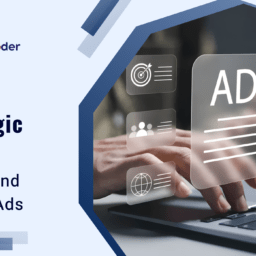What is the meaning of Myth?
A widely held but false belief or idea.
Every industry has its myths and so does the SEO world. Google tries now and again to shed light on common misconceptions. So here are some Top SEO Myths Busters.
Myth 1: SEO is a one-time project
At industry conferences, attendees hear people say that it is important to “get it right” to rank. This is true, yet not entirely accurate. Like any other company investment in assets, over time that very same investment will inevitably wear off. Best practices of the past become outdated or downright obsolete. To keep up with the competition, especially in the more lucrative niches. SEO needs to be considered an ongoing effort with planned, periodic spurts of increased activity scheduled ahead of time. Some factors such as snippet representation, directly impacting user experience and signals must be continuously monitored and improved. The same applies to page performance, which again is directly responsible for how users experience the website. Other factors, such as managing backlink liabilities, may only require spot checks and be part of an annual on- and off-page SEO audit.
Myth 2: SEO is backlinks
Links are fundamental to the internet as we know it. Without links, most search engines would not be able to find and crawl new content. For Google, backlinks also represent a ranking signal. However, contrary to popular perception, backlinks may harm website rankings. Next to manual spam actions (aka Google Penalties), there are also Google Algorithms such as Penguin tasked with identifying websites predominantly linked from low-quality websites. Google’s continuous mantra is that links must be based on merit, rather than paid or building schemes. Sites optimized with a disregard for Google Webmaster Guidelines will likely be in the crosshairs. But, SEO is not merely about PageRank passing backlinks.
Backlinks should be actively pursued, however, not for an illusionary PageRank gain, but to grow conversions, which is the primary purpose for optimizing websites and does not pose a risk that the site may be penalized and disappear from SERPs altogether. Google does leave a door open for sites that had been in violation with Google linking policies at some point by providing the Disavow Tool, which allows a website to disassociate from undesirable backlinks.
Myth 3: Google AdWords has an impact on SEO
Despite years and years of educational work, one of the most common SEO myths remains the notion that Google AdWords has a positive impact on website rankings. Organic, natural search is fiercely independent of paid search. Regardless of the budget committed to AdWords campaigns, Google AdWords is not an SEO signal.
Myth 4: Keywords are key
In their infancy search engines relied heavily on the density of keywords on landing pages to correlate their relevance to queries. Fast-forward 20 years and keywords have lost much of their SEO importance. Google has always been ignoring Meta keywords, and while they crawl and index collapsed and behind tabs content, they tend not to rank sites for content, including keywords not visible to users. Keywords in URLs are not being used for ranking purposes either. Keywords are unlikely to have any desirable impact on CTR, especially in comparison with rich snippets breadcrumbs, which do help users navigate. The times of counting keywords on pages and attempting to identify a fleeting ideal ratio are a thing of the past. Content, which can be represented by data as much as by written words, is important for the context of the website, however, keywords are not relevant.
Myth 5: SEO is ‘freshness’
Yes, Google seems to be fond of content freshness. However, only when freshness is a factor to user intent. For sites operating in fast-paced news, vertical freshness can translate into a competitive advantage. That includes a small selection of actual news outlets like newspapers, magazines or portals. For the overwhelming majority of websites, freshness is not important as an SEO factor and no amount of changing publishing dates on old articles is going to convince Google its fresh content. Consequently, other than for news sites, freshness is not important.










